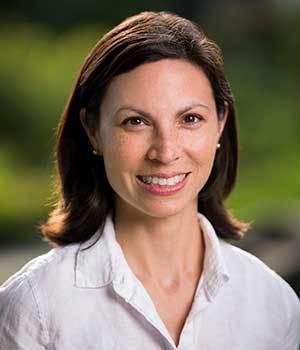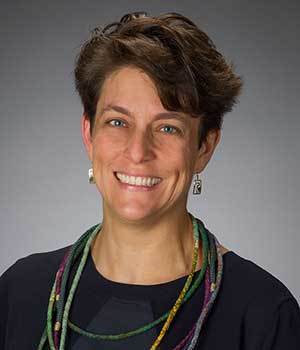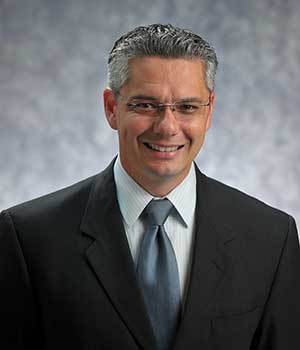Three University of Notre Dame faculty members — Rebecca Tinio McKenna, Sarah McKibben and Vincent Phillip Muñoz — have been offered fellowships from the National Endowment for the Humanities in the 2018 award cycle.
With 65 total awards, scholars in Notre Dame’s College of Arts and Letters have received more NEH fellowships than any other private university in the United States since 1999.
“We are incredibly proud of these three faculty members who continue Notre Dame’s remarkable success in earning NEH fellowships,” said Sarah A. Mustillo, I.A. O’Shaughnessy Dean of the College of Arts and Letters. “These awards recognize the outstanding research that is happening here across a range of disciplines, the creativity and originality of our scholars as well as the excellent support provided by the Institute for Scholarship in the Liberal Arts throughout the application process.”
 Rebecca McKenna
Rebecca McKenna
During the 2019-20 academic year, Rebecca Tinio McKenna, assistant professor of history, will continue her research on the history of the piano.
McKenna’s project explores largely forgotten figures in the production of the instrument through the early 20th century. Among these figures are African-American musicians who gave life to the instrument in theaters and saloons, sounding notes that would sell sheet music and, in turn, the piano itself. McKenna’s research brings together historical fields often treated in isolation — music history with labor history, African-American history, business history and imperial histories.
“I am aiming to tell a history of the instrument’s manufacture in the United States together with a history of the sounds piano players produced and the stories they told across the ivory keys,” McKenna said. “In the process, I hope to show some of the connections shared by people in seemingly far-flung places — from the late 19th-century American, middle-class parlor to the ivory warehouses of Zanzibar; from a Connecticut River company town where ivory keys were made, to saloons and theaters in cities like New York, Chicago, Sedalia and New Orleans.”
 Sarah Mckibben
Sarah Mckibben
Sarah McKibben, associate professor of Irish language and literature, will continue her research on bardic poetry in Ireland, for which she also won a fellowship from the American Council of Learned Societies in early 2018.
McKibben’s research focuses on Irish poets of the 16th and 17th centuries, who composed compelling artistic expressions of praise and warning — as well as satire — in the face of an antagonistic, expanding Tudor-Stuart state.
“Whether inveighing against ‘dlígheadh is fhiú aindligheadh’ (‘[English] law that is mere unlawfulness’), urging a patron to defend them ‘ar smacht ríogh’ (‘against the king’s oppression’), warning him not to be ‘meallta’ (‘wooed’) by English tricks, or comically threatening him with ‘sreath iolfháobhair raghlain rann’ (‘many bright blades of eulogistic quatrains’), bardic poets testify to the richness of the poetic tradition in confronting change,” McKibben said. “Their voices cry out to be heard, and this is why I wish to examine the native literary response to colonial transformation.”
McKibben added that she feels honored to have been selected for an NEH Fellowship for her work in Irish/Celtic studies, which is a field rarely selected for national awards in the United States.
“The award will enable me to make a significant contribution to early modern Irish language studies, a field I enjoy teaching regularly here at Notre Dame,” McKibben said.
 Vincent Phillip Muñoz
Vincent Phillip Muñoz
For Vincent Phillip Muñoz, Tocqueville Associate Professor of Political Science and concurrent associate professor of law, the NEH award will enable him to complete his forthcoming book, “Religious Freedom and the American Founding: The Natural Right of Religious Liberty, the Original Meanings of the Religion Clauses, and Our ‘First Freedom’ Today.”
Muñoz’s research examines the United States founders’ political and constitutional philosophy of religious liberty. His NEH book project will seek to recover the founders’ philosophy of governmental limits and to construct a natural-rights approach to the First Amendment’s religion clauses.
“Our founders deserve a hearing when we think about matters of religious freedom because they have something to teach us about the natural right of religious liberty,” Muñoz said. “The founders might not be able to provide answers to all of our contemporary church-state questions, but we ought to consult them and appropriate the wisdom they do have to offer.”
“The aim of my work is to help citizens and office holders better understand and respect the meaning of our God-given rights,” said Muñoz. “I’m thankful to the NEH and Notre Dame for their support, and will do my best to use this award to recover knowledge that will help serve the common good.”